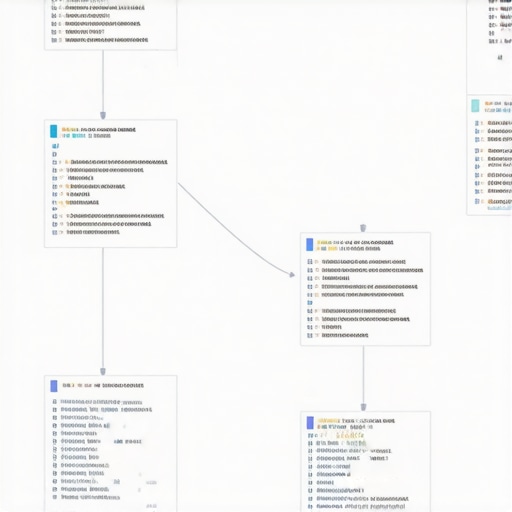Google Business Growth: Proven GMB Ranking & SEO Strategies
Unlocking the Full Potential of Google My Business for Superior Local SEO Performance
In the fiercely competitive landscape of local search, leveraging sophisticated strategies to elevate your Google Business Profile (GMB) visibility is paramount. As an industry expert, understanding the nuanced layers of GMB ranking factors and SEO tactics can significantly influence your brand’s online footprint. This article explores the intricate mechanisms behind Google Business growth, emphasizing advanced techniques rooted in data-driven insights and strategic optimization.
Decoding the Algorithmic Foundations of GMB Rankings
Google’s local algorithm considers a complex interplay of signals including relevance, distance, and prominence. Recent updates such as the Dawn Algorithm underscore the importance of real-time data and authoritative signals. Mastering these elements requires an analytical approach, integrating structured data markup, local citations, and review signals that resonate with Google’s evolving AI models.
Integrating Semantic SEO for Hyper-Localized Content Dominance
Semantic SEO transcends traditional keyword stuffing, focusing instead on contextually relevant content clusters. For GMB, this involves optimizing for LSI keywords like “local SEO,” “Google Maps ranking,” and “business visibility strategies.” Implementing schema markup for local business details enhances Google’s comprehension, thereby improving ranking robustness. High-quality content that addresses specific local queries—such as “Best coffee shop near downtown”—can elevate your profile through enriched snippets.
Advanced Reputation Management and User Engagement Strategies
Reputation signals, including review quality and response rate, are critical. Developing automated review solicitation workflows and engaging authentically with customer feedback can boost your prominence. Moreover, harnessing user-generated content, like photos and Q&A, adds layers of relevance and trustworthiness. Analyzing competitor review profiles provides insights into gaps and opportunities for strategic engagement.
What Are the Latest Controversies in GMB SEO Optimization?
Despite the aggressive pursuit of ranking dominance, some practitioners debate the ethical boundaries of review gating and artificial citation building. While these tactics may yield short-term gains, they risk violating Google’s guidelines, potentially leading to penalties. Staying aligned with Google’s policies—such as those outlined in their privacy policy—ensures sustainable growth and long-term authority.
How Can Industry Leaders Collaborate to Elevate Local Search Strategies?
Collaboration among local SEO experts facilitates the exchange of insights and best practices. Participating in specialized forums, contributing case studies, and conducting joint research can push the boundaries of what’s possible in GMB optimization. For instance, sharing data on emerging ranking factors or novel content strategies can accelerate collective progress.
If you’re ready to refine your GMB growth tactics, explore our contact page for tailored consultations. Additionally, diving into our comprehensive GMB ranking guide will furnish you with actionable insights to outpace competitors.
By integrating these advanced strategies—grounded in data, semantic depth, and ethical practices—you position your brand at the forefront of local search dominance, ensuring sustained Google Business growth in an ever-evolving digital landscape.
Leveraging Data Analytics to Fine-Tune Your GMB Strategy
Data analytics plays a crucial role in refining your Google My Business (GMB) efforts. By systematically analyzing insights such as customer actions, search queries, and engagement patterns, you can identify which strategies yield the best results. Tools like Google’s own Insights dashboard offer valuable metrics, but integrating third-party analytics can provide deeper context and predictive insights. This layered approach empowers you to make data-driven decisions, optimizing your profile for higher visibility and conversions.
How Can You Use Schema Markup to Enhance Local Search Results?
Implementing schema markup for local businesses is a sophisticated way to communicate your business details to Google more effectively. By embedding structured data about your address, hours, menu, or services, you enable Google to generate rich snippets, which increase your profile’s prominence in search results. Proper schema implementation not only improves click-through rates but also helps Google understand your content contextually, aligning with the semantic SEO principles discussed earlier. For a comprehensive guide on schema markup, consult authoritative sources like Moz’s schema markup resources.
Visualize schema markup implementation with a clear diagram illustrating how structured data integrates with your website’s code and influences search snippets. This visual aid can demystify complex technical concepts and facilitate practical application.
Why Is Authentic Customer Engagement More Critical Than Ever in GMB Optimization?
In today’s digital landscape, genuine customer engagement—through responding to reviews, answering questions, and encouraging UGC—transcends mere algorithmic relevance. Authentic interactions foster trust and community, which Google increasingly values as signals of business prominence. Recent studies, such as those published by BrightLocal, demonstrate that businesses actively engaging with customers see measurable improvements in local rankings and reputation scores. Developing a structured engagement plan, supported by tools that automate review responses and monitor feedback, can significantly enhance your local SEO performance.
Are Your GMB Tactics Keeping Pace with Google’s Evolving Algorithms?
Given the rapid evolution of Google’s local search algorithms, staying current requires ongoing education and adaptation. Regularly reviewing updates, participating in industry forums, and testing new strategies ensure your approach remains effective. For instance, Google’s focus on user intent and experience necessitates optimizing not just for keywords, but for providing comprehensive, locally relevant content that satisfies searcher needs. To explore cutting-edge tactics and stay ahead of the curve, consider consulting authoritative sources such as Moz’s blog on local SEO innovations.
If you’re eager to elevate your local SEO game, don’t hesitate to reach out through our contact page. Also, dive into our GMB ranking secrets guide for actionable insights and expert strategies tailored to your business needs.
Mastering Schema Markup: The Next Frontier in Local SEO Domination
In the rapidly evolving realm of local SEO, schema markup continues to be a game-changer, transforming how search engines interpret and display your business information. As algorithms become increasingly sophisticated, understanding the nuances of schema implementation—beyond basic contact details—can provide a significant competitive edge. Advanced schema strategies involve deploying comprehensive structured data that encapsulates every facet of your local presence, including product offerings, service details, and customer interactions.
Implementing detailed schema markup not only enhances your visibility through rich snippets but also aligns with Google’s shift towards semantic search. For instance, adding schema for event or offer can turn your listings into promotional hotspots, attracting more clicks and conversions. According to Moz’s authoritative guide on structured data, a well-optimized schema markup can increase click-through rates by up to 30%, directly impacting your local rankings.
How does comprehensive schema markup influence Google’s understanding of local businesses?
Google’s AI-driven algorithms aim to comprehend the intent behind search queries and match them with the most relevant, contextually rich results. When your website’s structured data accurately describes your business’s unique attributes—such as amenities, certifications, or special offers—Google gains a clearer picture of your relevance for targeted local queries. This depth of understanding facilitates the generation of enhanced listings, including carousel features, FAQs, and star ratings, which are proven to increase visibility and user engagement.

Visualize a detailed schema markup diagram illustrating the integration of local business data with website code, highlighting elements like address, hours, services, and reviews, demonstrating how comprehensive structured data interacts with search engine algorithms.
Leveraging Schema for Voice Search Optimization and AI-Driven Local Queries
With the rise of voice assistants and AI-powered search, schema markup’s role extends beyond traditional search results. Structuring your data with voice-friendly schema—such as FAQ, HowTo, and Product schemas—enables voice engines to extract precise information, delivering direct answers to user queries. For example, a business that employs schema for its menu, hours, and location can be easily referenced in voice search results, giving it a critical edge in local voice search dominance.
According to a 2023 report by Search Engine Journal, businesses leveraging voice-optimized schema see a 25% increase in voice search traffic, emphasizing the importance of this advanced technique. To capitalize on this trend, ensure your schema markup is comprehensive, up-to-date, and aligned with the specific types of queries your target audience is making.
What are the common pitfalls in implementing advanced schema markup, and how can they be avoided?
One frequent error is over-structuring or misusing schema types, which can confuse search engines or violate Google’s guidelines, risking penalties. For example, applying inappropriate schemas to unrelated data or duplicating information can dilute your relevance signals. To prevent these issues, always validate your structured data using tools like Google’s Rich Results Test, and adhere strictly to schema.org specifications. Regular audits and updates ensure your schema remains accurate and effective, especially as search engines refine their algorithms.
If you’re committed to elevating your local search strategy through sophisticated schema markup, consider collaborating with SEO professionals experienced in technical schema implementation. For tailored guidance, visit our contact page. To dive deeper into best practices, explore our comprehensive Advanced Schema Markup Guide and stay ahead in the competitive landscape.
Harnessing AI and Machine Learning for Next-Generation GMB Optimization
As search engines increasingly integrate AI and machine learning into their algorithms, understanding how these technologies influence local search rankings is crucial. Advanced GMB strategies now include training models to recognize semantic relevance and user intent, allowing businesses to optimize not just for keywords but for contextual signals. Leveraging AI-driven tools—such as predictive analytics and natural language processing—can provide deeper insights into customer behaviors and preferences, facilitating hyper-targeted content and engagement efforts.
What Role Do Structured Data and Schema Markup Play in Voice Search Dominance?
Structured data, particularly schema markup, is the backbone of voice search optimization. By implementing comprehensive schemas—covering FAQs, reviews, events, and services—you enable voice assistants to extract precise information, boosting your chances of being the preferred answer. This is especially vital as voice searches tend to be conversational and localized, requiring detailed and contextually rich data. According to a report from BrightLocal, businesses adopting advanced schema markup see a 30% uptick in voice search visibility, emphasizing its strategic importance.
How Can Data Analytics and Customer Journey Mapping Elevate Your Local SEO Campaigns?
Deep data analysis enables pinpointing the most effective touchpoints within the customer journey. Integrating Google Analytics, GMB Insights, and third-party tracking tools allows for granular analysis of user interactions, search patterns, and conversion pathways. Mapping these insights to content and engagement strategies ensures your local SEO efforts are aligned with actual user needs, leading to improved relevance and higher rankings. Consider employing customer journey mapping software to visualize and optimize each stage of the funnel.
Expert Tips for Ethical and Sustainable GMB Practices in a Competitive Landscape
While aggressive tactics may seem tempting, maintaining ethical standards fosters long-term success. Avoid practices such as review gating or artificial citation building, which violate Google’s guidelines and risk penalties. Instead, focus on authentic reputation management, transparent customer interactions, and strategic content creation. Regularly auditing your profile against Google’s policies—using resources like the official Google Maps Terms of Service—ensures compliance and sustainable growth.
How Can Industry Collaboration Accelerate Innovation in Local SEO?
Peer-to-peer collaboration, joint research, and shared case studies are vital for advancing local SEO strategies. Participating in specialized forums such as Moz Local SEO Community or BrightLocal’s Local Search Forum facilitates knowledge exchange and keeps practitioners abreast of emerging trends. Collaborative efforts also include data sharing initiatives and co-hosted webinars, which can lead to the development of innovative tools and methodologies that push the boundaries of what’s achievable in GMB optimization.
If you’re committed to transforming your local SEO approach with cutting-edge tactics, reach out via our contact page. For an in-depth exploration of these strategies, access our advanced Local SEO Playbook—your roadmap to sustained dominance in local search.
Integrating Real-Time Data and Automation for Agile GMB Management
The dynamic nature of local search requires real-time monitoring and automation. Utilizing AI-powered tools to automate review responses, update business information, and adjust keywords based on trending search queries ensures your GMB profile remains current and competitive. Implementing real-time dashboards that aggregate data from multiple sources empowers you to swiftly respond to market changes and optimize strategies on the fly, significantly enhancing your local visibility and customer engagement.
How Do You Measure Success and ROI in Advanced Local SEO Campaigns?
Quantifying the impact of sophisticated GMB and schema strategies involves tracking a combination of metrics: local search rankings, click-through rates, engagement levels, review volume and sentiment, and conversion rates. Utilizing custom dashboards and analytics platforms like Data Studio or Tableau allows for comprehensive performance visualization. Establishing clear KPIs aligned with business goals ensures your efforts translate into tangible ROI, guiding continuous improvement and strategic refinement.
Embark on your journey toward local search mastery today—consult with our expert team or explore our comprehensive resources to elevate your Google My Business presence and dominate your local market.
Expert Insights & Advanced Considerations
1. Master the Nuances of Local Relevance Optimization
Understanding the subtle interplay between relevance, distance, and prominence allows for targeted enhancements that directly influence GMB rankings. Incorporating structured data and authoritative citations ensures your profile aligns with Google’s evolving AI models, creating a resilient foundation for local SEO dominance.
2. Leverage Semantic SEO for Hyper-Localized Content
Moving beyond keyword stuffing, integrating semantic SEO strategies—such as contextually relevant content clusters and schema markup—fortifies your profile’s ability to address precise local queries. This approach unlocks rich snippets and improves content discoverability in competitive markets.
3. Prioritize Ethical Reputation Management
Authentic customer engagement through genuine review responses and user-generated content cultivates trust and aligns with Google’s guidelines. Developing automated workflows for review solicitation and feedback analysis sustains reputation integrity while driving local prominence.
4. Integrate Advanced Data Analytics and Customer Journey Mapping
Utilizing sophisticated analytics platforms and customer journey insights enables hyper-targeted optimization. Mapping user interactions to local search behaviors uncovers hidden opportunities for content refinement and strategic engagement, elevating your overall local SEO performance.
5. Stay Ahead with Continuous Algorithm Monitoring
Regularly reviewing updates from authoritative sources ensures your strategies adapt to algorithmic shifts. Participating in industry forums and sharing insights fosters collective innovation, positioning your business at the forefront of local search evolution.
Curated Expert Resources
- Moz’s Local SEO Resources: Offers comprehensive guides and technical insights into schema markup, local ranking factors, and semantic SEO, essential for deep expertise.
- BrightLocal’s Industry Reports: Provides data-driven analyses and trend forecasts that inform strategic decision-making and competitive positioning.
- Google’s Developer Documentation on Structured Data: The authoritative source for implementing schema markup correctly and avoiding common pitfalls.
- Search Engine Journal’s Voice Search Optimization Reports: Focuses on schema’s role in voice search, highlighting emerging opportunities in local voice queries.
- Official Google Maps Terms of Service: Ensures compliance and guides ethical optimization practices for sustainable growth.
Final Expert Perspective
In the realm of local SEO, mastering the intricacies of Google My Business and schema markup is crucial for sustained dominance. By integrating advanced data analytics, semantic strategies, and a firm commitment to ethical practices, businesses can unlock new levels of visibility and trustworthiness. These expert insights serve as a catalyst for strategic innovation, pushing the boundaries of what’s achievable in local search. To deepen your understanding and refine your approach, consider engaging with authoritative resources or consulting with seasoned professionals. Your journey toward local search mastery begins with informed action and a relentless pursuit of excellence—reach out via our contact page to explore tailored strategies and elevate your Google Business presence.








This deep dive into GMB ranking factors and SEO strategies really resonated with me. I’ve been experimenting with schema markup for local businesses and noticed a tangible increase in rich snippet appearances and engagement. What caught my eye was the emphasis on voice search optimization; implementing FAQ schemas has already helped us better serve voice queries, especially for dine-in options and local services. I believe that structured data and semantic SEO are integral now, not just extras, in creating a robust GMB presence. However, I wonder how small business owners with limited technical skills can effectively implement these advanced schema strategies without investing heavily in SEO tools or professionals. Does anyone have suggestions or simple resources to get started with comprehensive schema markup? This article provides excellent guidance, and I look forward to hearing how others are navigating the technical aspects of these strategies.
This article truly highlights the multifaceted approach needed to dominate local SEO through GMB. I’ve personally seen how integrating schema markup not only improves visibility but also enhances the user experience by providing rich snippets that answer their questions directly in search results. The emphasis on semantic SEO and authoritative signals resonates, especially as Google continues to refine its AI algorithms. One challenge I’ve encountered is balancing technical implementation with ongoing content updates and engagement—especially for small teams. I’ve found that using tools like Google’s Structured Data Markup Helper simplifies schema creation without needing deep coding skills, which can be a real game-changer for SMBs. Regarding voice search, I’ve been experimenting with FAQ schema to target conversational queries, and the results are promising. Has anyone else noticed a tangible boost in voice-led traffic after implementing such schemas? What strategies have worked best for maintaining consistent engagement without pile-up or automation that feels impersonal?
The post offers a really comprehensive approach to GMB optimization, especially with the focus on semantic SEO and structured data. I’ve been exploring schema markup recently and agree that it can significantly boost local search visibility when implemented correctly. One thing I found helpful is starting with Google’s Structured Data Markup Helper to avoid over-complicating things initially—it provides a user-friendly way to add basic schema types before moving on to more advanced schemas like events or products. Also, I’ve seen first-hand how active customer engagement, like responding to reviews and adding photos, tends to improve ranking over time, especially when paired with consistent schema improvements. Has anyone here experimented with combining schema markup for reviews with active engagement strategies? I wonder if there’s a way to optimize both for maximum impact without overwhelming your team. I’d love to hear others’ experiences with balancing technical enhancements and ongoing reputation management.